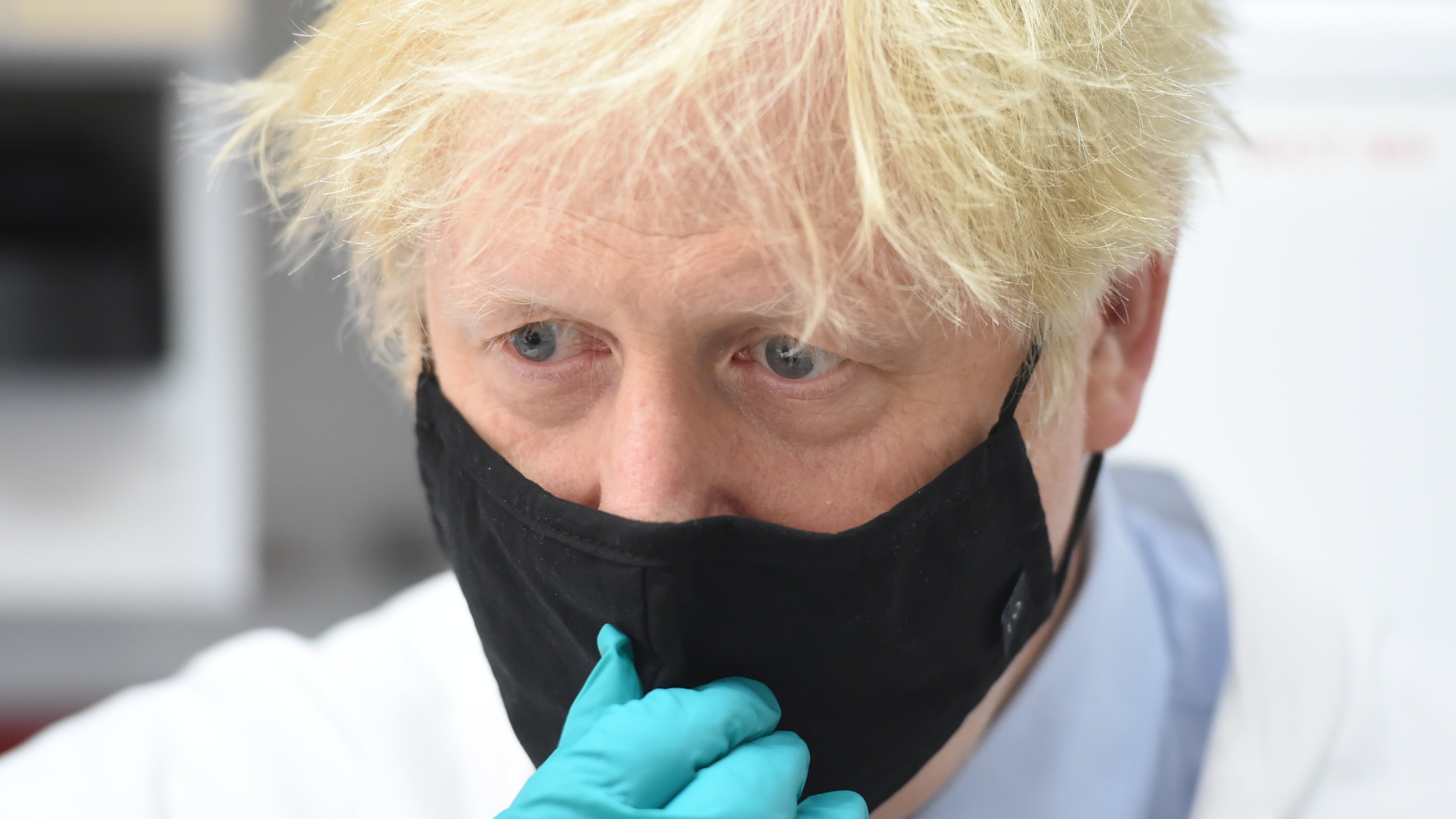Why Boris Johnson fears flu may become bigger threat than Covid
Government advisers predict influenza virus will ‘come back to bite us’ after being suppressed by social distancing

A free daily email with the biggest news stories of the day – and the best features from TheWeek.com
You are now subscribed
Your newsletter sign-up was successful
Boris Johnson has urged Britain to prepare for a “rough winter” as major outbreaks of flu intensify the “big pressures on the NHS” amid the Covid-19 pandemic.
The prime minister said that while plans to end coronavirus restrictions on 19 July were “looking good”, government experts were advising “that things like flu will come back this winter”. This predicted resurgence is “all the more reason to reduce the number of Covid cases now, give the NHS the breathing space it needs to get on with dealing with all those other pressures”, Johnson told reporters during a visit to a lab in Hertfordshire.
“Flu effectively vanished last year because of social distancing,” The Times reports. But Professor Anthony Harnden, deputy chair of the Joint Committee on Vaccination and Immunisation, warned yesterday that the annual virus may “come back to bite us”.
The Week
Escape your echo chamber. Get the facts behind the news, plus analysis from multiple perspectives.

Sign up for The Week's Free Newsletters
From our morning news briefing to a weekly Good News Newsletter, get the best of The Week delivered directly to your inbox.
From our morning news briefing to a weekly Good News Newsletter, get the best of The Week delivered directly to your inbox.
“Flu could be potentially a bigger problem this winter than Covid,” Harnden told BBC Radio 4’s Today programme. “We’ve had a very, very low prevalence of flu for the last few years, particularly virtually nil during lockdown, and we do know that when flu has been circulating in very low numbers immunity drops in the population.”
His warning has been echoed by Dr Eleanor Gaunt, an expert in respiratory viruses at the University of Edinburgh, who says “some of the measures we have taken in the pandemic” have “inadvertently affected our immunity to other viruses”.
In an article for the i news site, Gaunt writes that a year of measures such as mask wearing and social distancing means “we have not experienced our usual set of exposures to respiratory viruses”, resulting in a “lack of immunity” that could trigger high infection rates and “an increase in numbers requiring hospitalisation”.
The Telegraph says that health officials have “told GPs to prepare for a surge in children’s illnesses, fuelled by lack of exposure to everyday bugs”, after last winter brought “the lowest flu levels on record” in the UK.
A free daily email with the biggest news stories of the day – and the best features from TheWeek.com
Professor Simon Kenny, NHS England’s national clinical director for young people, told a GP webinar last week that respiratory viruses among children were likely to rise by between 20% and 50%, compared with before the pandemic, reports healthcare news magazine Pulse.
“We’ve heard reports from the southern hemisphere of unseasonal outbreaks of respiratory viruses as lockdown eases and as the non-pharmacological interventions such as distancing and face mask wearing goes away,” he said.
This rise - and that predicted for the UK - is “largely due to the fact that we’ve got a significant cohort of children now who have never had the normal viruses”, said Kenny, who also warned of a “difficult winter” ahead. Primary care, A&E and 111 services would “probably” face the greatest pressure, he added.
Respiratory viruses expert Gaunt writes that “immunity of infants is of particular concern”. Because “new mothers have not had their usual exposure to influenza this year, it is possible that immune protection in newborns will be diminished and that we will see worse outcomes”, she explains.
“It is therefore strongly advisable that women who are currently pregnant or breastfeeding get their flu jab when they become available,” Gaunt adds.
Health Secretary Matt Hancock told Times Radio today that the NHS is preparing for “a very significant flu vaccination drive this autumn”.
“You might get your Covid booster jab and your flu jab at the same time, we are testing whether that can be done,” Hancock revealed.
Joe Evans is the world news editor at TheWeek.co.uk. He joined the team in 2019 and held roles including deputy news editor and acting news editor before moving into his current position in early 2021. He is a regular panellist on The Week Unwrapped podcast, discussing politics and foreign affairs.
Before joining The Week, he worked as a freelance journalist covering the UK and Ireland for German newspapers and magazines. A series of features on Brexit and the Irish border got him nominated for the Hostwriter Prize in 2019. Prior to settling down in London, he lived and worked in Cambodia, where he ran communications for a non-governmental organisation and worked as a journalist covering Southeast Asia. He has a master’s degree in journalism from City, University of London, and before that studied English Literature at the University of Manchester.